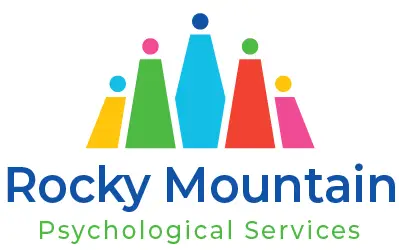If your child seems to be constantly in motion, has a tough time focusing, or often acts without thinking, you may find yourself wondering, “Is this just a phase? Or is something more going on?”
For many parents, these questions eventually lead to a closer look at Attention Deficit Hyperactivity Disorder, or ADHD.
This condition goes beyond high energy or occasional forgetfulness. ADHD can affect how kids pay attention, control impulses, and stay organized. Symptoms usually show up in childhood and can have a noticeable impact on school performance and social skills.
The good news is that Calgary offers a wide range of effective support options, including ADHD treatment that families can rely on. With the right approach, many children with ADHD can thrive in the classroom, at home, and out in the real world.
ADHD in Children: What It Looks Like
ADHD doesn’t always present the same way in every child. One child might be forgetful and daydreamy, while another might have trouble sitting still or controlling emotions. Some kids might show a combination of symptoms.
What’s important to understand is that ADHD is a neurological condition. It isn’t caused by poor discipline, sugar, or screen time, although those things can influence behavior. More often, ADHD runs in families and affects how certain parts of the brain develop.
Here are a few signs that may point to ADHD in children:
(Source: American Psychiatric Association, 2013)
- Difficulty following instructions
- Interrupting or acting without thinking
- Frequently losing homework or supplies
- Struggling with frustration or big emotions
It’s true that every child can zone out, struggle to sit still, or forget things. For children who have ADHD, the issue is that these things happen more to them than other children their age, and the symptoms are impacting their daily life in a variety of environments. This is why a proper assessment and diagnosis matter.
How to Get a Diagnosis in Calgary
If you’re concerned about your child, you could speak with your family doctor about your concerns. They could rule out any possible medical conditions, such as thyroid issues, celiac disease, or even a head injury that might be resulting in the symptoms you’re noticing. If the medical conditions are ruled out, some family doctors will evaluate for ADHD themselves, some will suggest a referral to a pediatrician, and some will suggest an assessment by a psychologist who specializes in children or ADHD. (Did you know that not all psychologists do assessments?).
The assessment process typically includes:
- Interviews with you and your child
- Feedback from teachers or caregivers
- Standardized behavior questionnaires
- Cognitive testing
Rather than simply labeling the behavior, the goal of assessment is to understand how ADHD is affecting daily life. This insight helps parents, teachers, and psychologists to create a support plan that actually works.
Getting a diagnosis can bring a real sense of clarity. From there, you can focus on solutions.
Treatment Options Available in Calgary
ADHD treatment in Calgary is most effective when approached through a bio-psycho-social lens. This framework considers how biological factors (like brain function and genetics), psychological components (such as behavior and emotions), and social environments (family, school, peers) interact to shape a child’s experiences. A treatment plan that reflects this integrated approach, tailoring support to each child’s unique biological, emotional, and social needs, is more likely to be effective than just focusing on one aspect alone (like only focusing on medication, for example). This framework can support day-to-day life by combining evidence-based strategies like CBT, executive skills coaching, support at school, and family involvement to help individuals with ADHD thrive.
There’s no one-size-fits-all method for treating ADHD. Most families find that a combination of support methods works best. This may include therapy, school accommodations, parent coaching, and medication. It could also include other less well-known components such as neurofeedback therapy.
Here’s what’s commonly available in Calgary:
Therapy That Builds Everyday Skills
ADHD therapy in Calgary can help children develop tools to stay calm, stay focused, and manage tricky situations.
Some effective therapy options include:
- ADHD-Specific Counseling: Using modalities such as Cognitive Behavioral Therapy (CBT) or other approaches that help the child to be more aware of their behavior and choices, as well as their emotions.
- Parent Coaching/Counseling: This can help parents to strengthen communication and their relationship with their child and set up routines and home organization to make things easier, all of which can help make things at home easier.
- Executive Skills Counseling/Coaching: This teaches children strategies such as how to get started on tasks, how to break down large tasks, or organizational strategies. Sometimes, executive skills counseling and ADHD-specific counseling are combined.
- Social Skills Training: This teaches children how to interact, share, and pick up on social cues.
Many Calgary psychologists use hands-on activities, games, and creativity to keep younger kids engaged.
Coaching And Support For Parents
Managing ADHD isn’t just about the child. It affects the entire family. That’s why many treatment plans include parent coaching. You’ll learn how to:
- Understand what ADHD is and why kids with ADHD can focus on some things and not others.
- Set up systems and strategies to help your child complete less preferred tasks.
- Respond calmly to outbursts.
- Build consistent routines.
- Communicate with your child’s school.
Support Through The School System
Schools in Calgary can support students with diagnosed ADHD. Accommodations might include:
- Extra time for assignments and tests
- Breaks during the day
- Visual aids to reinforce instructions
- Support from learning teams or school psychologists
Once your child has a formal diagnosis of ADHD, you can request a meeting with your child’s teacher or school staff to discuss an Individualized Program Plan (IPP) tailored to your child’s needs.
Medication (When It Makes Sense)
Not all children with ADHD need medication. For some, though, it can make a big difference. When medication is part of the plan, it typically falls into one of two main categories:
- Stimulants: These are often effective and fast-acting.
- Non-stimulants: These are helpful for children who don’t respond well to stimulants or who experience side effects.
Your doctor, pediatrician, or child psychiatrist will guide you through the options and monitor progress through regular follow-ups.
For more information about ADHD and treatment options, including medications, parents can visit CADDAC, a reputable Canadian organization supporting ADHD awareness and education.
Where to Find ADHD Support in Calgary
Once you know what kind of help your child needs, the next step is finding professionals who can provide it. There are several ways to access support in Calgary, both through public services and private clinics.
Start with:
- Your family doctor: They may evaluate for ADHD in-office or suggest a referral to a pediatrician or to a psychologist who can do more assessment, such as cognitive and learning assessment, to rule out other issues like learning disabilities that could be impacting the child’s learning at school.
- Private clinics: There are many private practice psychologists in Calgary and the surrounding area. What is most important is to look for individuals or practices that have a strong background and experience in diagnosing and treating ADHD. One of these includes Rocky Mountain Psychological Services (RMPS).
- Alberta Health Services (AHS): This public service offers children’s mental health support, although waitlists can be long.
- CHADD (Children and Adults with ADHD): There is also a local chapter of CHADD, which is a nonprofit organization serving people affected by ADHD.
Your child’s school is also a great place to start. Teachers and counselors often have connections to local ADHD resources and can help you move forward.
Choosing the Right Therapist or Psychologist
Not all therapists have the same experience with ADHD. When looking for the right fit, consider asking:
- Do they regularly work with kids who have ADHD?
- Do they involve parents in sessions and planning?
- Do they offer both therapy and parent support?
- How long are the sessions, and how often do they recommend them?
- How do they monitor progress?
What Parents Can Expect
Getting a diagnosis and starting treatment for your child can feel overwhelming. You may find yourself juggling appointments, emotions, and tough decisions. It’s completely normal to experience a mix of relief, guilt, and worry.
Just remember, ADHD is only one part of your child’s identity. With the right tools and encouragement, your child can thrive. Many children with ADHD grow up to be focused, creative, and resilient adults. They just need support that fits how they think and learn.
Final Thoughts
ADHD is more common than people often realize, and it’s highly manageable. The key is building a support system that aligns with your child’s strengths and needs.
Parents in Calgary have access to a wide range of resources, from family doctors and pediatricians to experienced psychologists who understand how to work with kids to supportive schools. Whether you’re just beginning the journey or adjusting an existing plan, know that you’re not alone.
Sometimes, the best way to start is with a conversation. Talk to your doctor, reach out to a psychologist, or connect with your child’s teacher. The first small step can put you on the path to making life for you and your child easier.


